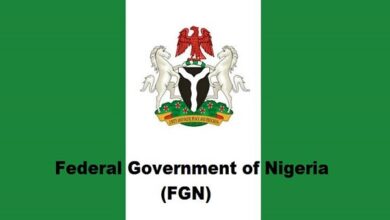Nigerians purchasing power drops as prices rise —Stanbic report

The purchasing power of Nigerians has seen a significant decline in recent years. This drop can be attributed to a variety of factors, including inflation, high unemployment rates, and a weakened economy. As a result, Nigerians are finding it increasingly challenging to afford basic necessities and are experiencing a decline in their standard of living.
According to the most recent Stanbic IBTC Purchasing Managers Index (PMI) survey report for the month, Nigerians’ purchasing power declined in November as prices rose at the quickest rate in nearly two years. Depreciation of the naira and increased fuel and material costs were the main causes of this. According to the report, Nigerian companies faced significant challenges in November due to high inflationary pressures. The decline in output and new orders was attributed to customers’ reluctance or inability to pay higher prices.
The report further stated: “The declines in output and new orders generally reflected steep price rises and the impact these had on customer demand. Companies raised their selling prices rapidly again in November, with the rate of inflation slowing only slightly and remaining among the strongest on record. Close to half of all respondents raised their charges during the month. “The rise in selling prices was in response to higher input costs. Purchase price inflation quickened to a near two-year high on the back of exchange rate weakness and higher costs for fuel and materials.
Read Also : 1,800 workers risk losing jobs, as P&G set to leave Nigeria
Policy Effects
The Nigerian government’s removal of the gasoline subsidy and other policy interventions have made the situation worse as the cost of food and other necessities keeps rising. In his inaugural speech on May 29, President Bola Tinubu declared that the gasoline subsidy would be eliminated. After the announcement, the Nigerian National Petroleum Company Limited (NNPCL) instructed its fuel outlets across the country to sell fuel at a price between N480 and N570 per litre, which is nearly 200 percent more than the initial price of N200.
The hike immediately triggered an increase in transportation fares and prices of goods and services, including foodstuff, by various percentages. Inflation has remained high in Africa’s largest economy, prompting the apex bank to hike interest rates to their highest levels in nearly two decades
Market Insight
Arbiterz findings showed that on the average, the price of 50-kilogramme of sugar that previously sold between N30,000 to N32,000 now sells between N60,000 and N62,000. A 50-kilogramme bag of foreign rice (long grain) sold between N35,000 and N37,000 is now sold for N55,000 – N60,000 while a 50kg bag of a short grain of foreign rice that was sold between N22,000 and N23,000 is now sold for N50,0000 – N57,000. A 50-kilogramme bag of honey beans (oloyin) rose to N60,000 against the previous price of N56,000, just as 1.5-kilogram of white beans (popularly called a mudu) rose from N800 to N1,000.







